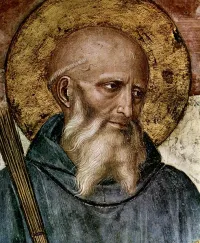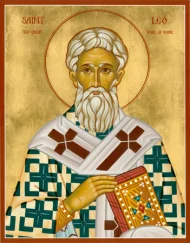Ought we to pray without ceasing? Is it possible to obey such a command?
[…] Prayer is a petition for good addressed by the pious to God. But we do not rigidly confine our petition to words.
Nor yet do we imagine that God requires to be reminded by speech. He knows our needs even though we ask Him not.
What do I say then? I say that we must not think to make our prayer complete by syllables.
The strength of prayer lies rather in the purpose of our soul and in deeds of virtue reaching every part and moment of our life.
“Whether ye eat,” it is said, “or drink, or whatever ye do, do all to the glory of God” (1 Cor. 10:31).
As you take your seat at table, pray. As you lift the loaf, offer thanks to the Giver. When you sustain your bodily weakness with wine, remember Him Who supplies you with this gift, to make your heart glad and to comfort your infirmity.
Has your need for taking food passed away? Let not the thought of your Benefactor pass away too. As you are putting on your tunic, thank the Giver of it.
As you wrap your cloak about you, feel yet greater love to God, Who alike in summer and in winter has given us coverings convenient for us, at once to preserve our life, and to cover what is unseemly.
Is the day done? Give thanks to Him Who has given us the sun for our daily work, and has provided for us a fire to light up the night, and to serve the rest of the needs of life.
Let night give the other occasions of prayer. When you look up to heaven and gaze at the beauty of the stars, pray to the Lord of the visible world; pray to God the Arch-artificer of the universe, Who in wisdom has made them all.
When you see all nature sunk in sleep, then again worship Him Who gives us even against our wills release from the continuous strain of toil, and by a short refreshment restores us once again to the vigour of our strength.
[…] Let your slumbers be themselves experiences in piety; for it is only natural that our sleeping dreams should be for the most part echoes of the anxieties of the day. As have been our conduct and pursuits, so will inevitably be our dreams.
Thus will you pray without ceasing, if you not only pray in words, but unite yourself to God through all the course of life so that your life be made one ceaseless and uninterrupted prayer.
Basil the Great (330-379): Panegyrical Homily 5 (on Julitta the Martyr) [slightly adapted], quoted in the introduction to St Basil’s homilies in Nicene and Post-Nicene Fathers Series II Volume 8.









